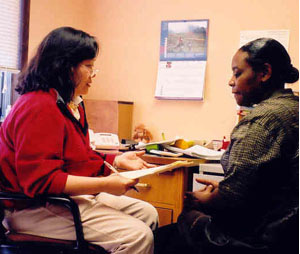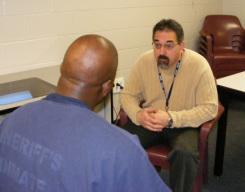1. A special strategy for people with drug and alcohol problems is essential
Addicts have special needs that the “garden variety” sinner does not have. They can be identified by using a standard alcohol screening test during the intake process. Then we can help them to get into an active program of recovery using such activities as support groups, addiction therapy, educational activities, etc. Use community resources if the shelter’s staff does not have expertise in this area. Addiction is a primary issue, so all other help giving will amount to nothing if the person cannot stay sober.

2. The Issue of Toxic Shame
By definition, “toxic shame” is an inner sense of being defective, faulty, unlovable, undeserving, unredeemable and hopeless. It is root problem for addicts, codependents and people from dysfunctional families. Most adults in family shelters fall into at least one of these categories. Toxic shame is the “glue” that holds the wall of denial together and prevents hurting people from accepting the help we offer them. They think – “If I admit I have problems, it proves that I am a worthless, useless human being.” Addiction leads to a total deterioration of a person’s moral life leading to a destructive mix of toxic shame and guilt. The Bible tells us that admitting our problems is not an admission of hopelessness or defectiveness. Instead, it is the key to forgiveness, freedom from our pasts and a new self-image.
 families. They can be excellent examples for mission clients and usually have special compassion and understanding for those who are still hurting. On the other hand, some are hindered in their efforts to minister to others because of their own codependency.
families. They can be excellent examples for mission clients and usually have special compassion and understanding for those who are still hurting. On the other hand, some are hindered in their efforts to minister to others because of their own codependency.





 who at one time would have been hospitalized for their problems. As many as half of them are also addicted to alcohol and/or drugs. Many are “self-medicating” — using addictive substances to cope with their mental problems. Social service professionals usually do not like working with these “dually diagnosed” people because they can be so demanding and time-consuming. They can be too destructive and troubled for the typical addiction recovery program. And, mental health workers shy away from them because they often do not stay sober long enough for treatments to be effective. So, they end up at the rescue mission.
who at one time would have been hospitalized for their problems. As many as half of them are also addicted to alcohol and/or drugs. Many are “self-medicating” — using addictive substances to cope with their mental problems. Social service professionals usually do not like working with these “dually diagnosed” people because they can be so demanding and time-consuming. They can be too destructive and troubled for the typical addiction recovery program. And, mental health workers shy away from them because they often do not stay sober long enough for treatments to be effective. So, they end up at the rescue mission.
